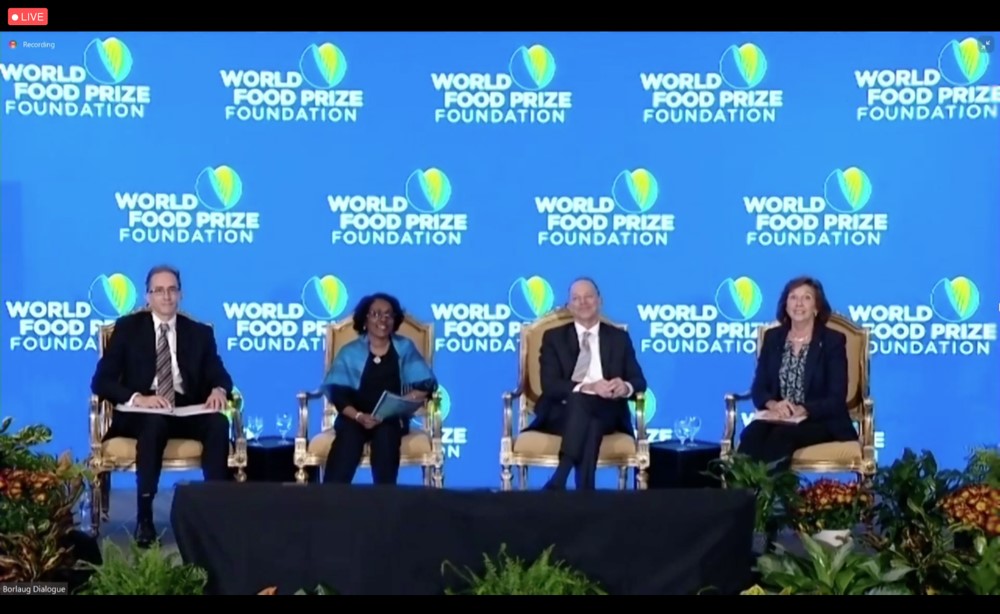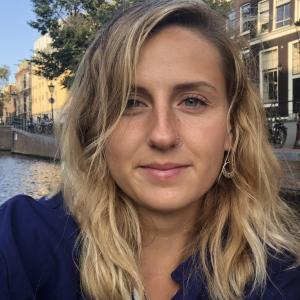
- The second half of the Borlaug Dialogue focused on implementing and scaling effective solutions to global food insecurity, with a focus on the poor and vulnerable
- World Food Prize Laureate Shakuntala Thilsted championed the power of aquatic foods to solve multiple challenges to sustainable development
The Borlaug Dialogue has come to a close, culminating in WorldFish’s Global Lead for Nutrition and Public Health Shakuntala Thilsted being awarded the 2021 World Food Prize.
An annual symposium, the Borlaug Dialogue brings together international experts, policy leaders, business executives and farmers to address cutting-edge issues in global food security and nutrition.
Throughout the week-long deliberations in Des Moines, Iowa, a host of main events and side events hosted by WorldFish and partners gathered researchers and practitioners to build on Thilsted’s research in nutrition-sensitive approaches to aquatic food systems. Diverse multidisciplinary panels explored strategies to increase the consumption of aquatic foods in vulnerable groups, particularly women and children during the first 1000 days of life.
Advancing women and children further and faster
In a dialogue between Thilsted and Anita Zaidi, president of gender equality at the Bill and Melinda Gates Foundation, the discussion centered on ways to empower women socially, nutritionally and financially.
The two women spoke on the importance of promoting women as agents of change and working to help them recognize their true potential, which would have significant benefits for food and nutrition security and local economies. Women already perform over 50 percent of post-harvest activities in fisheries and aquaculture, such as fish processing and retail, and they play key roles in aquatic food supply chains.
Furthermore, as a woman in STEM, Thilsted discussed her own challenges when starting out in the field, recognizing both the progress that has been made and that greater steps are still needed to achieve equality.
“I used to be the only woman in the room, the only woman attending conferences. I now see a great change when attending conferences and around half are women, so we’ve made great strides. But women are still poorly represented in leadership positions; men must propel this change and make space for women leaders,” said Thilsted.
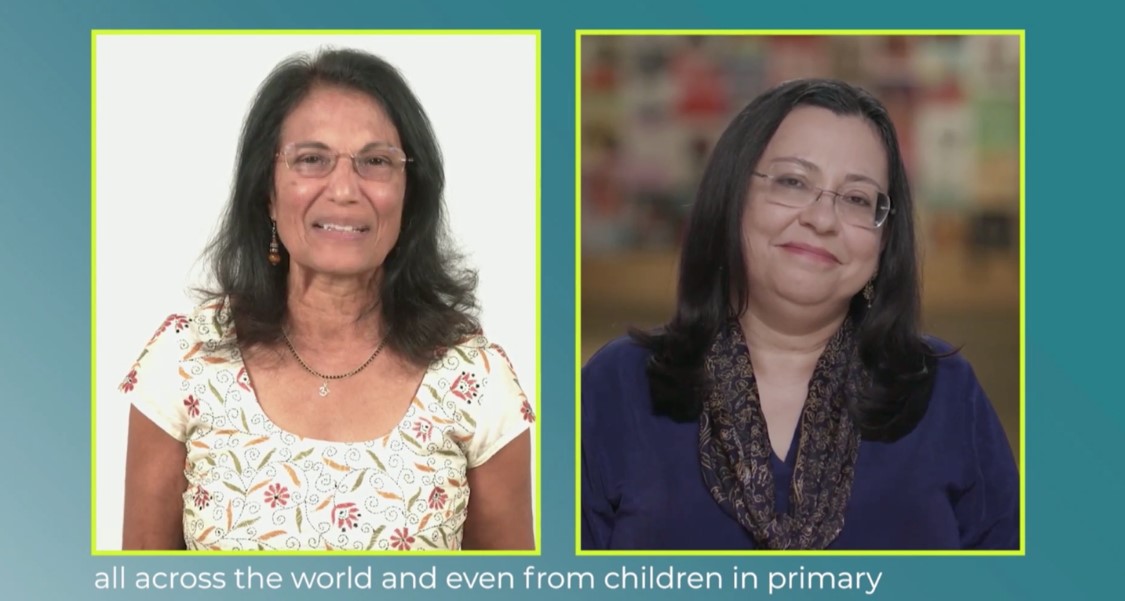
Workshops for real-world implementation
WorldFish’s Principal Scientist Chadag Mohan joined a lively workshop focused on strategies to counter growing antimicrobial resistance in farmed animals—a threat to food security everywhere.
Over 70 percent of farmed animals around the world live in industrial farmed systems, which are both crowded and prone to diseases, leading to excessive antibiotic use in order to counter poor conditions.
This is correlated with a rise in drug resistant infections in both terrestrial and aquatic food systems. Besides encouraging better hygiene practices and proper animal husbandry, Mohan spoke of the need to curb antibiotic use in aquaculture with vaccines and the development of disease-resistant fish strains.
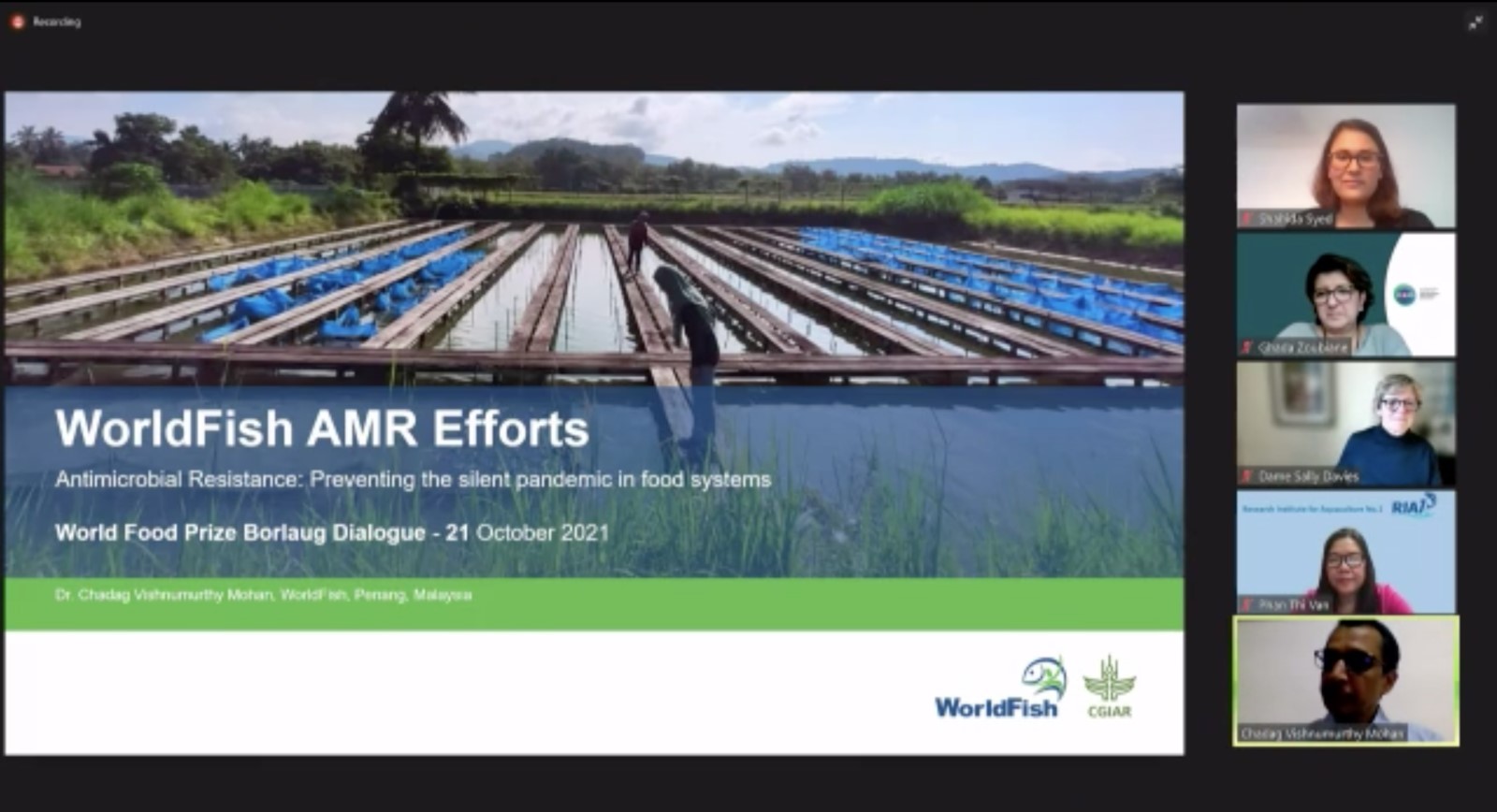
Roundtable discussions to develop holistic solutions
Four roundtable discussions were held throughout the course of the week to debate actions to holistically achieve global food and nutrition security and determine the path forward.
In the opening roundtable discussion,Claudia Sadoff, CGIAR managing director, discussed strategies to scale innovations and technologies and replicate successful approaches being applied elsewhere. She emphasized the need for culturally appropriate and context-specific interventions.
“If we want to scale our impacts, we need to adapt our innovations to each region independently,” said Sadoff.
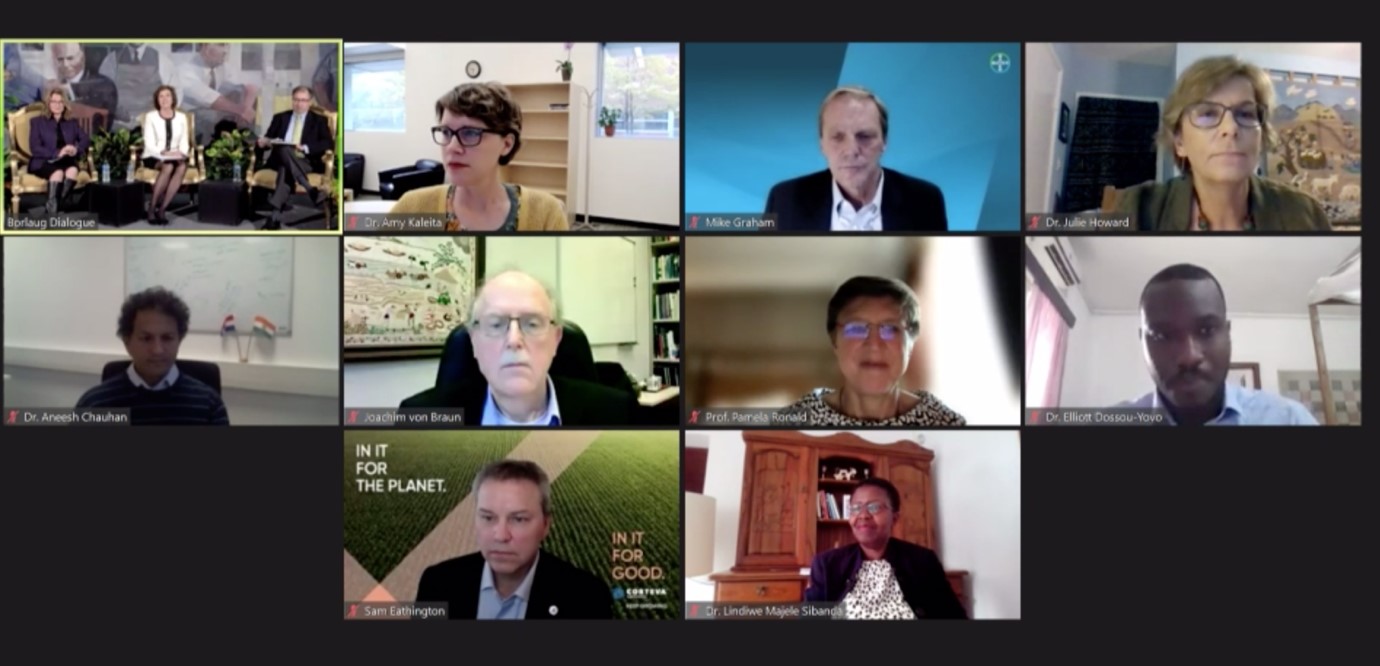
At the second roundtable discussion, Gender and Equitable Livelihoods, WorldFish Director General Gareth Johnstone discussed ways to implement effective strategies for women in agriculture.
Women’s contributions to food and economic security are often informal, and thus rendered invisible in data collection, but they play a critical role in getting fish from pond to plate.
“Women provide crucial labor, innovative ideas and entrepreneurship to the aquatic food sector and their contributions, although invisible, are strongly felt in their families and communities. An important first step here is to capture, document, describe and formally recognize women’s social and economic contributions by gathering the right data,” said Johnstone.
This discussion segued into the third roundtable on nutrition-sensitive food systems, where Thilsted spoke on improving access and affordability to nutrient-rich foods, especially for pregnant and lactating mothers and children during the first 1000 days of life.
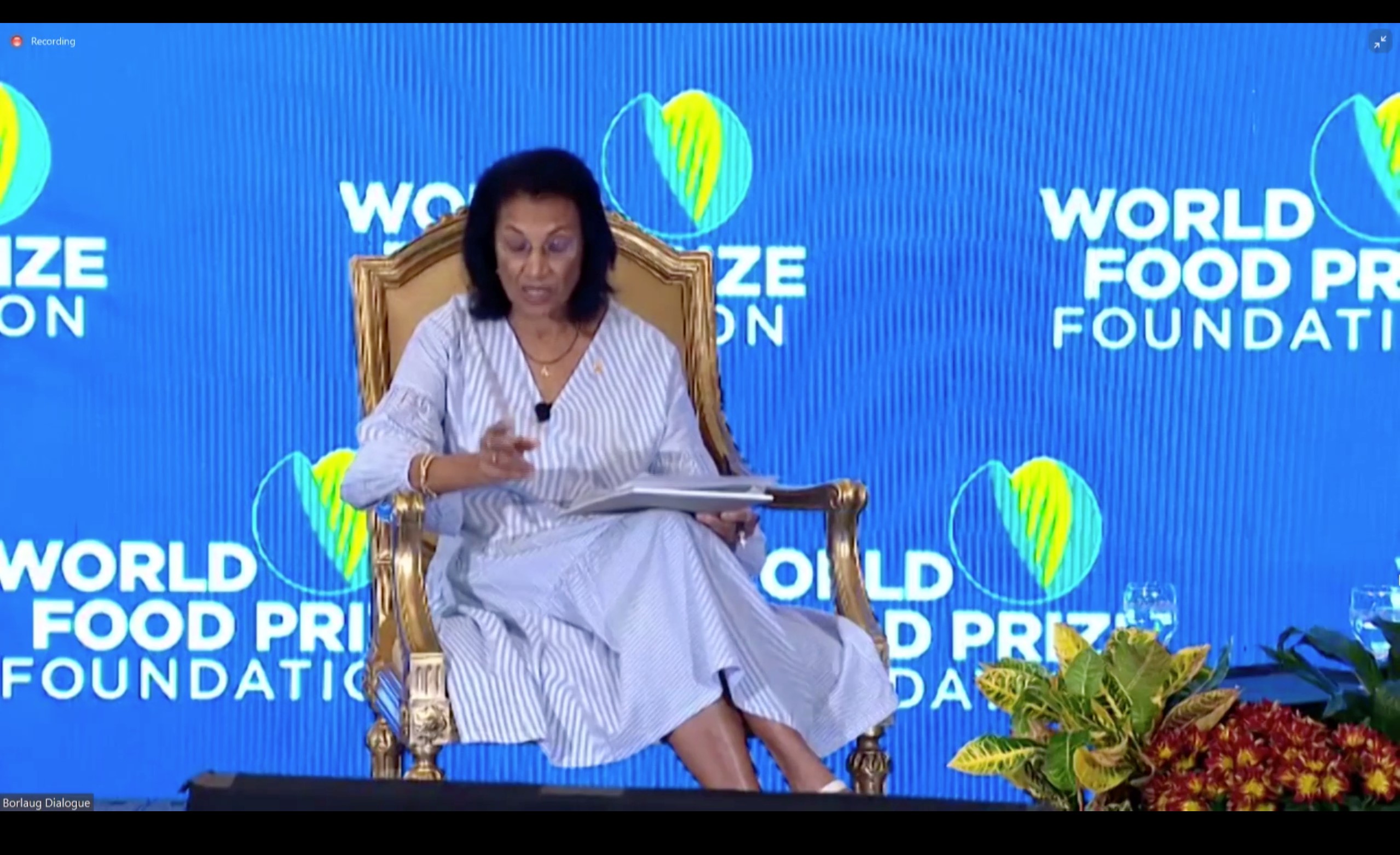
In the concluding roundtable, Kundhavi Kadiresan, the managing director of global engagement at CGIAR, participated in an in-person dialogue in Des Moines, where she joined Jim Barnhart of USAID and Jeffrey Giauque of the US Department of State.
Kadiresan emphasized the need for a holistic systems approach in order to tackle multiple demands: food security, climate adaptation, resilient livelihoods and adequate nutrition.
We have to transform agri-food systems in ways that are both good for people and planet and that work for everyone, she explained.
